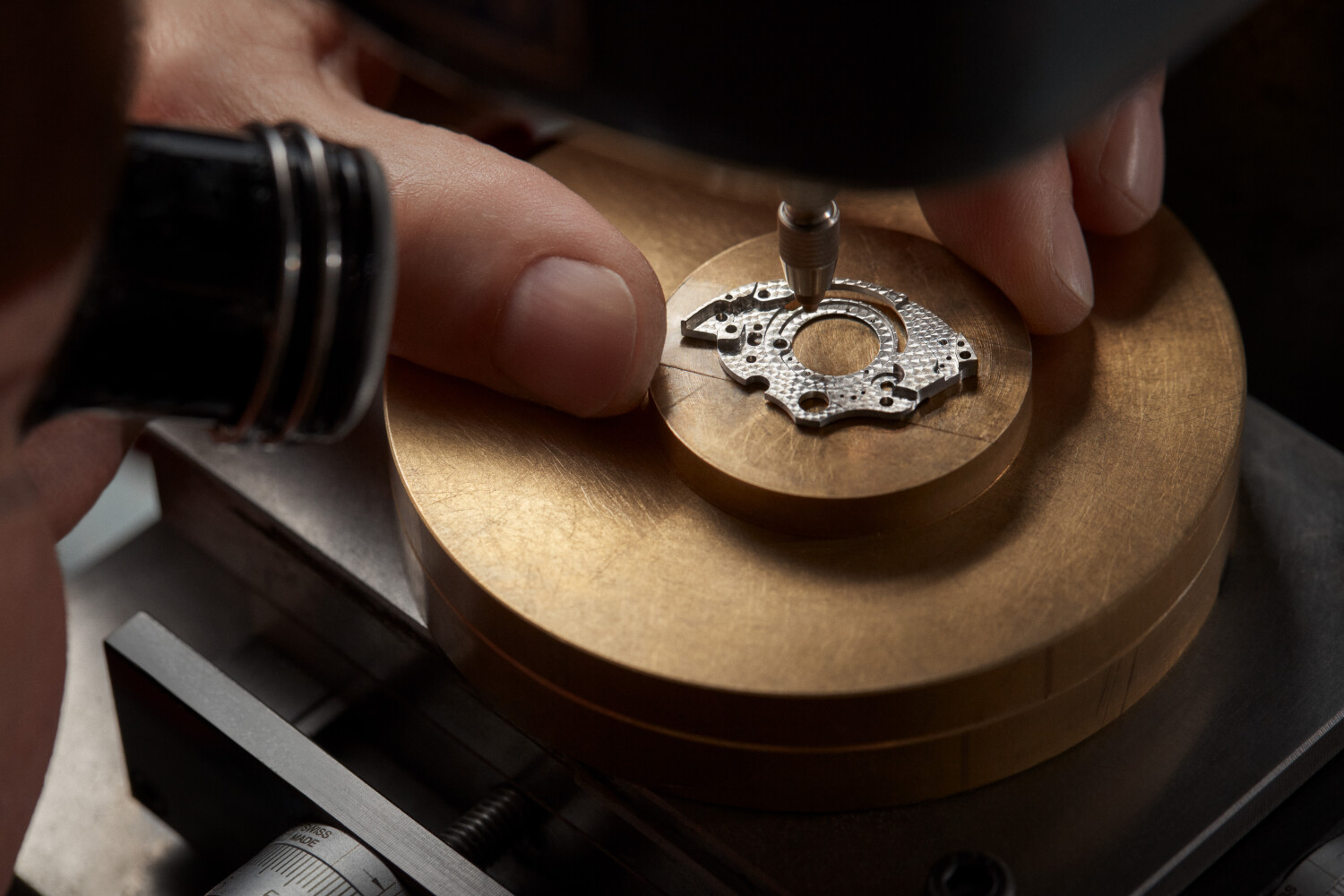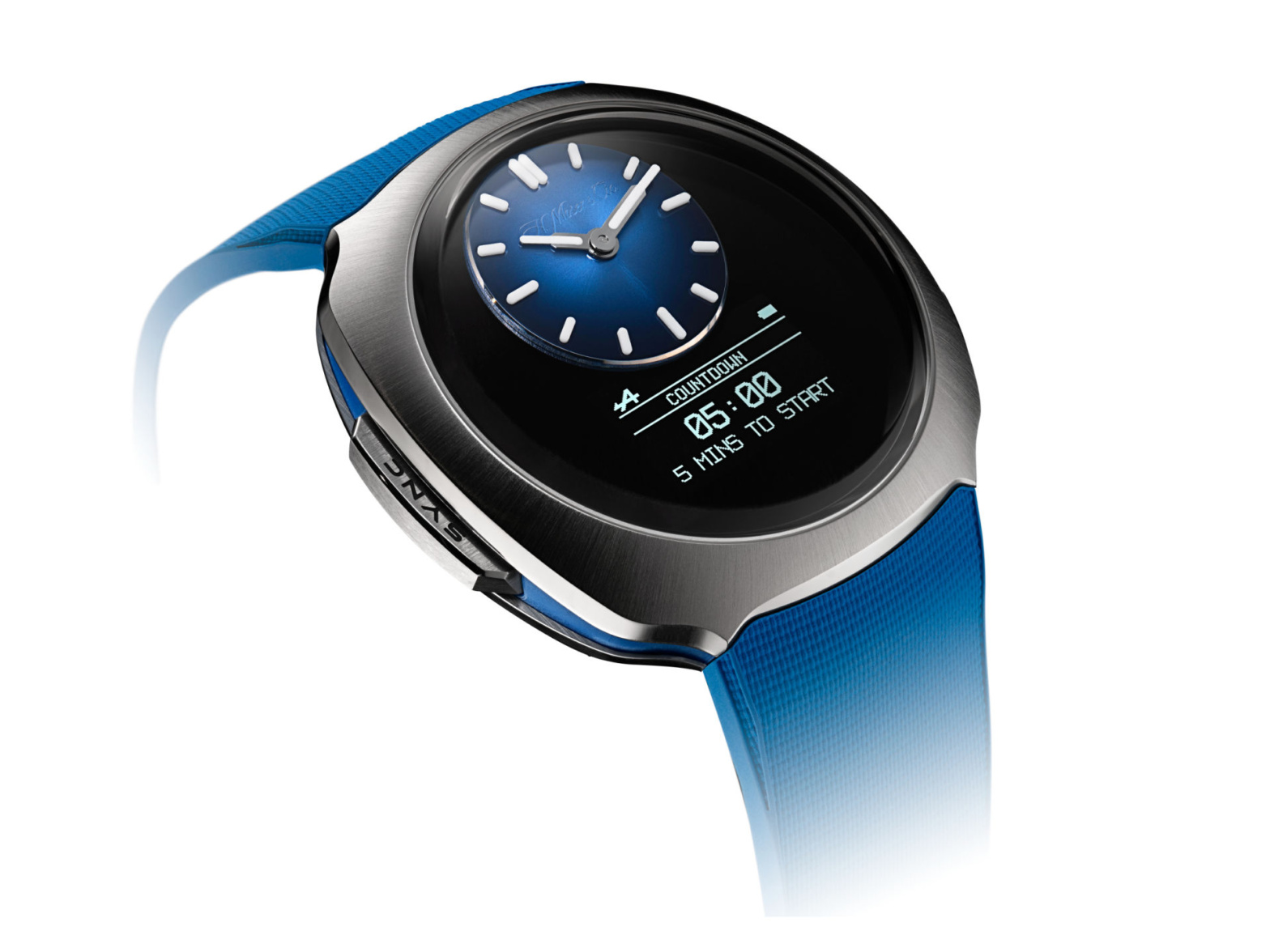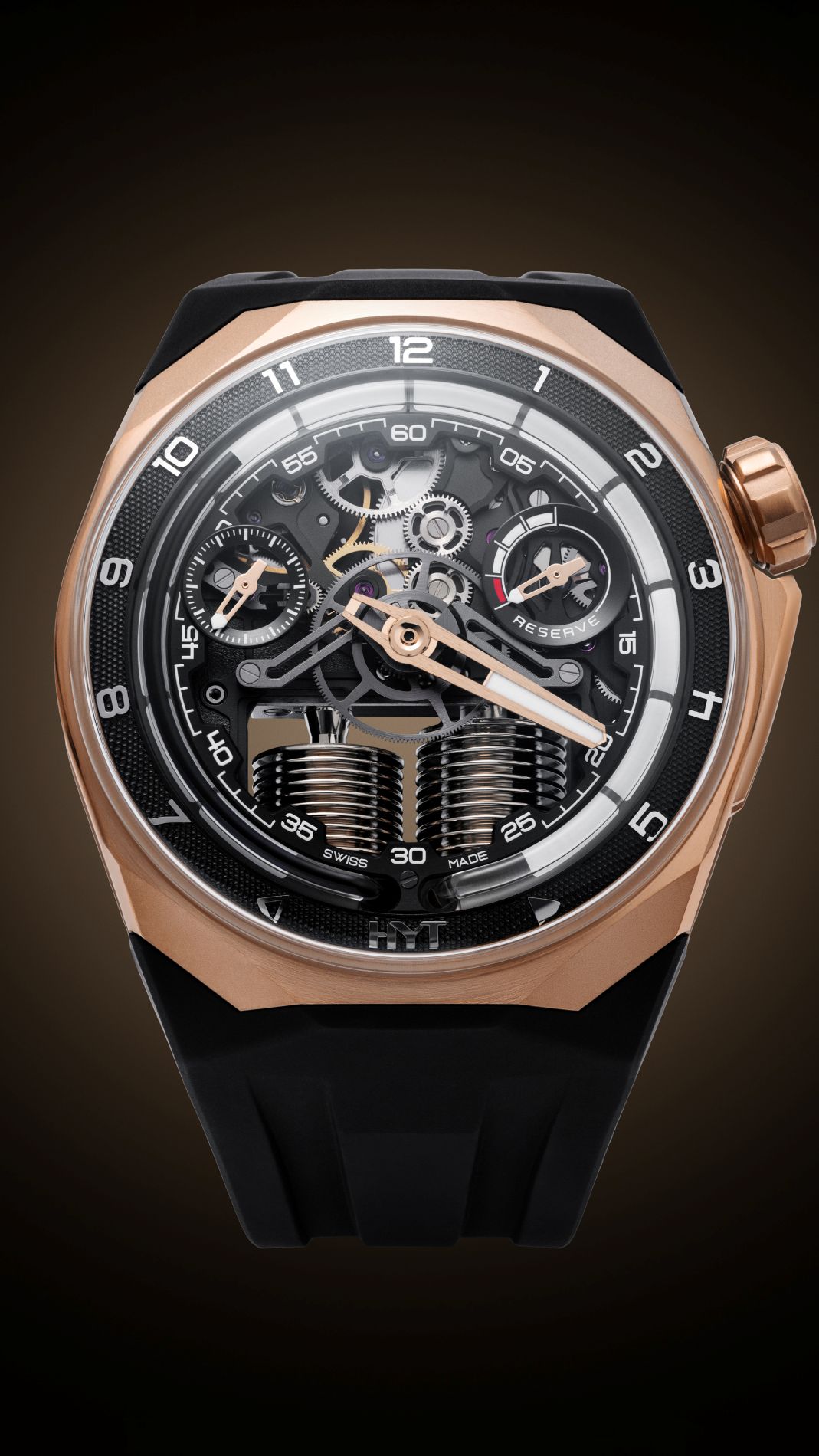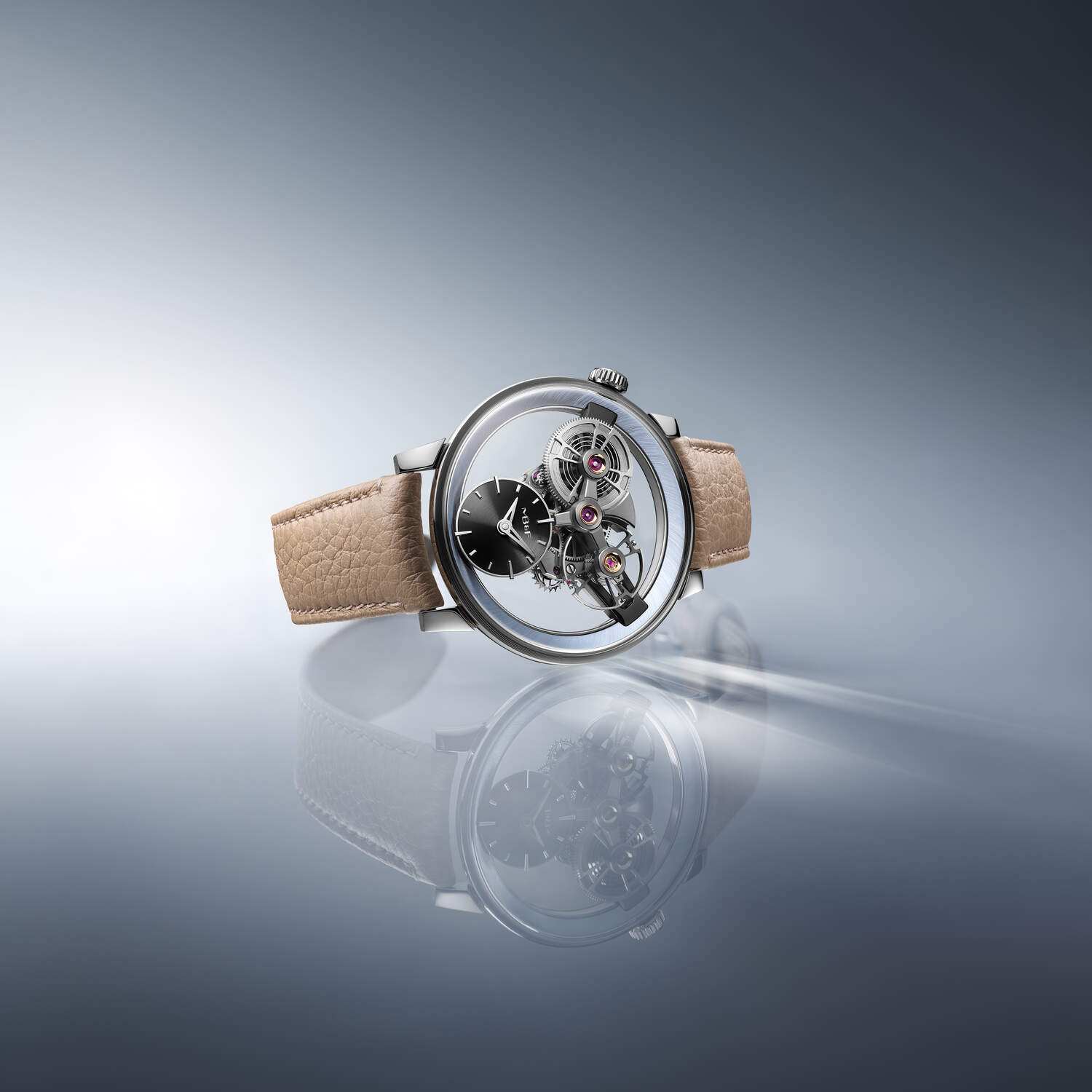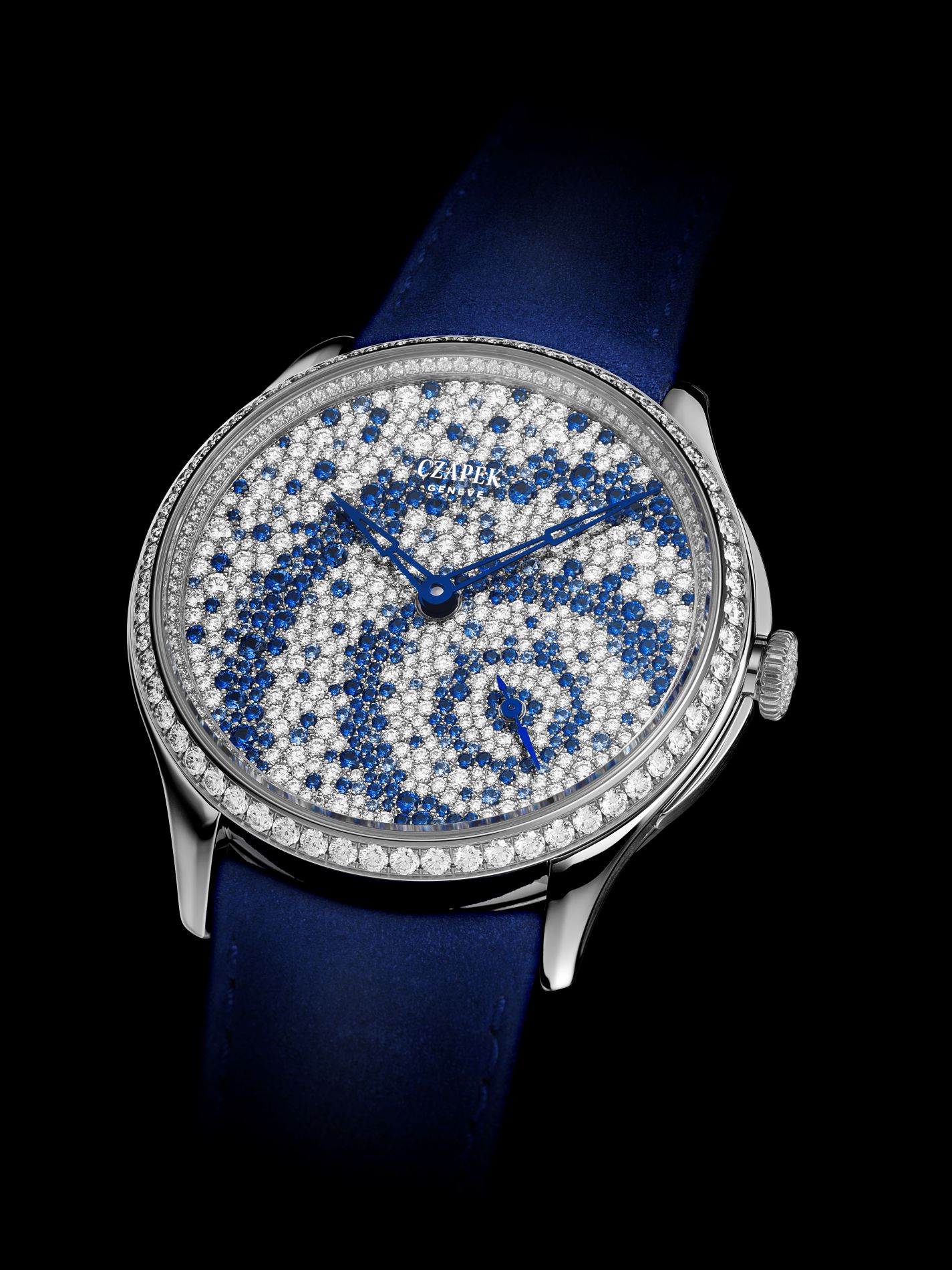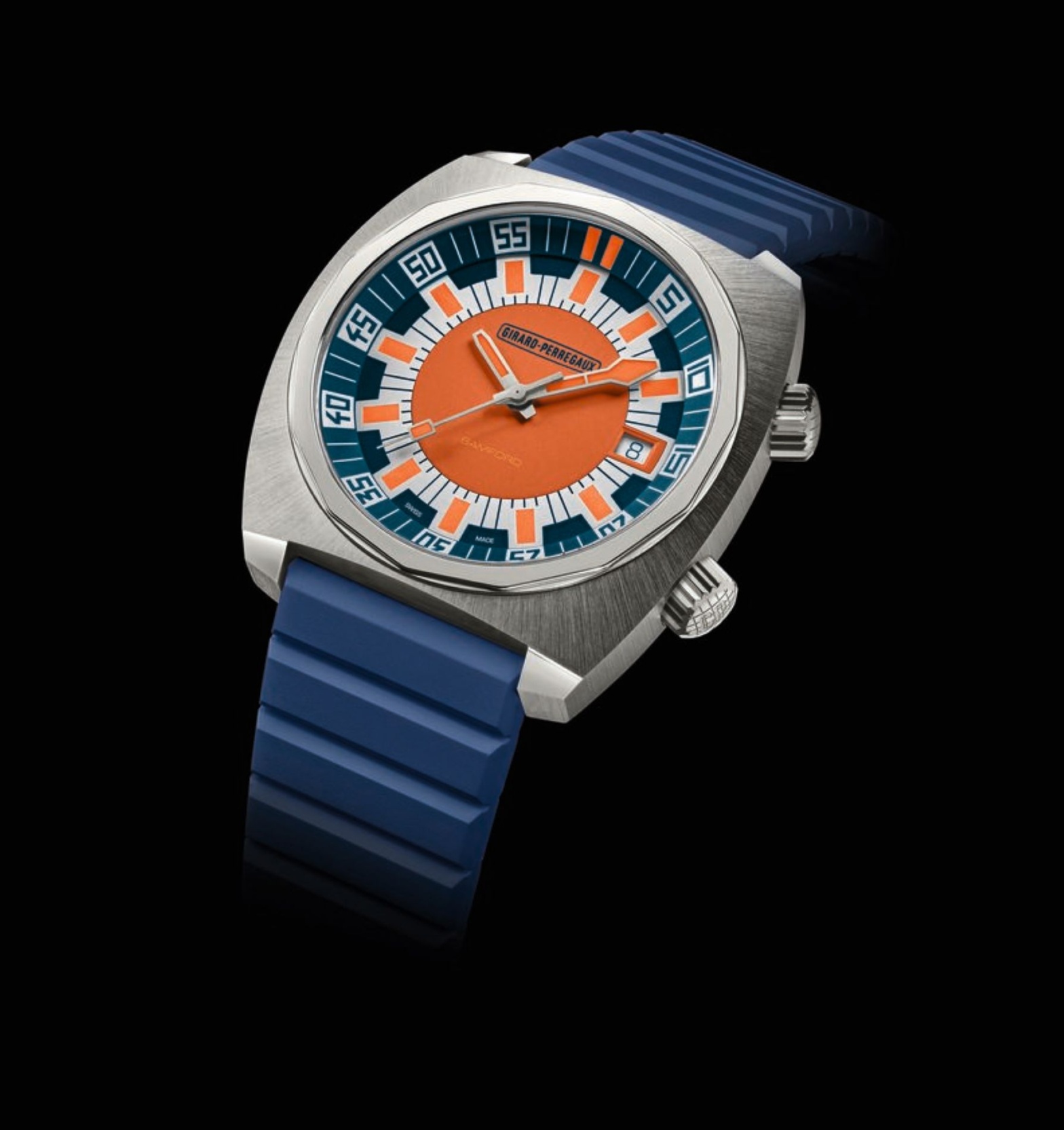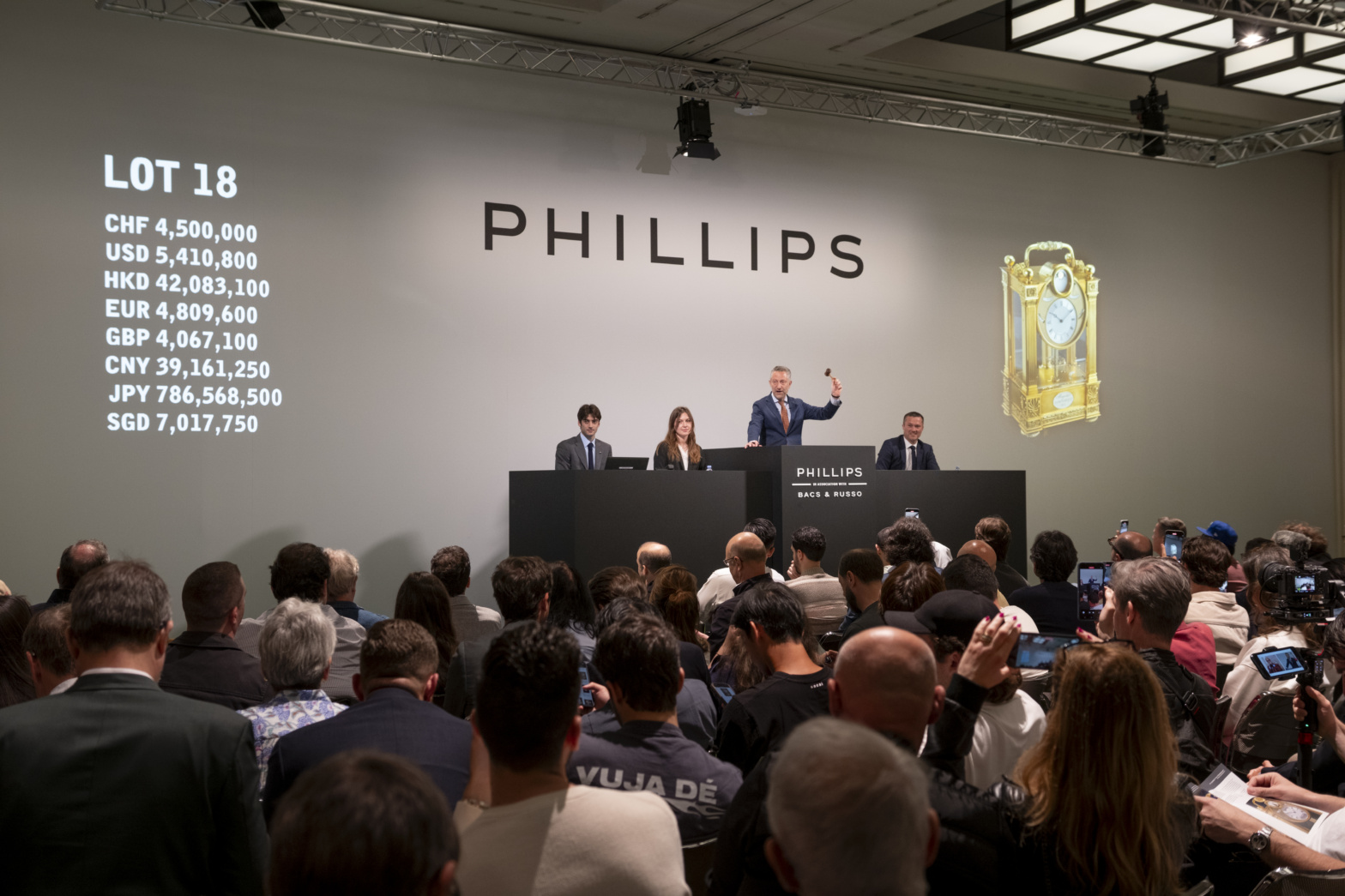Following the Louis Vuitton Watch Prize for Independent Creatives announced in early 2023, Louis Vuitton is embarking on a series of collaborative timepieces with renowned independent watchmakers, with the inaugural project being the LVRR-01 Chronographe à Sonnerie born from the collaboration between Atelier Akrivia and Louis Vuitton. Embodying the essence of both Maisons, the LVRR-01 is a double-faced chronograph with a chiming complication – true statement in the watch industry – powered by a completely new tourbillon movement developed from the ground up by Atelier Akrivia and its founder Rexhep Rexhepi in a redesigned Louis Vuitton Tambour case.

The fundamental concept of the LVRR-01 is encapsulated in the emblem on the sapphire dial. At a distance it appears to be the conventional logo, but up close the emblem reveals itself to be a union of the two brand names, with “LV” subtly incorporated into “AKRIVIA”. This represents the first time in history that Louis Vuitton has combined its logo with that of another brand. Louis cruises with Rexhep The LVRR-01 seamlessly unites two houses, Louis Vuitton and Atelier Akrivia, that are separated by time but likeminded in passion. Both Maisons were founded more than 150 years apart yet share core values, particularly in their approach to craftsmanship, and they have in common founders who are visionaries and artisans.
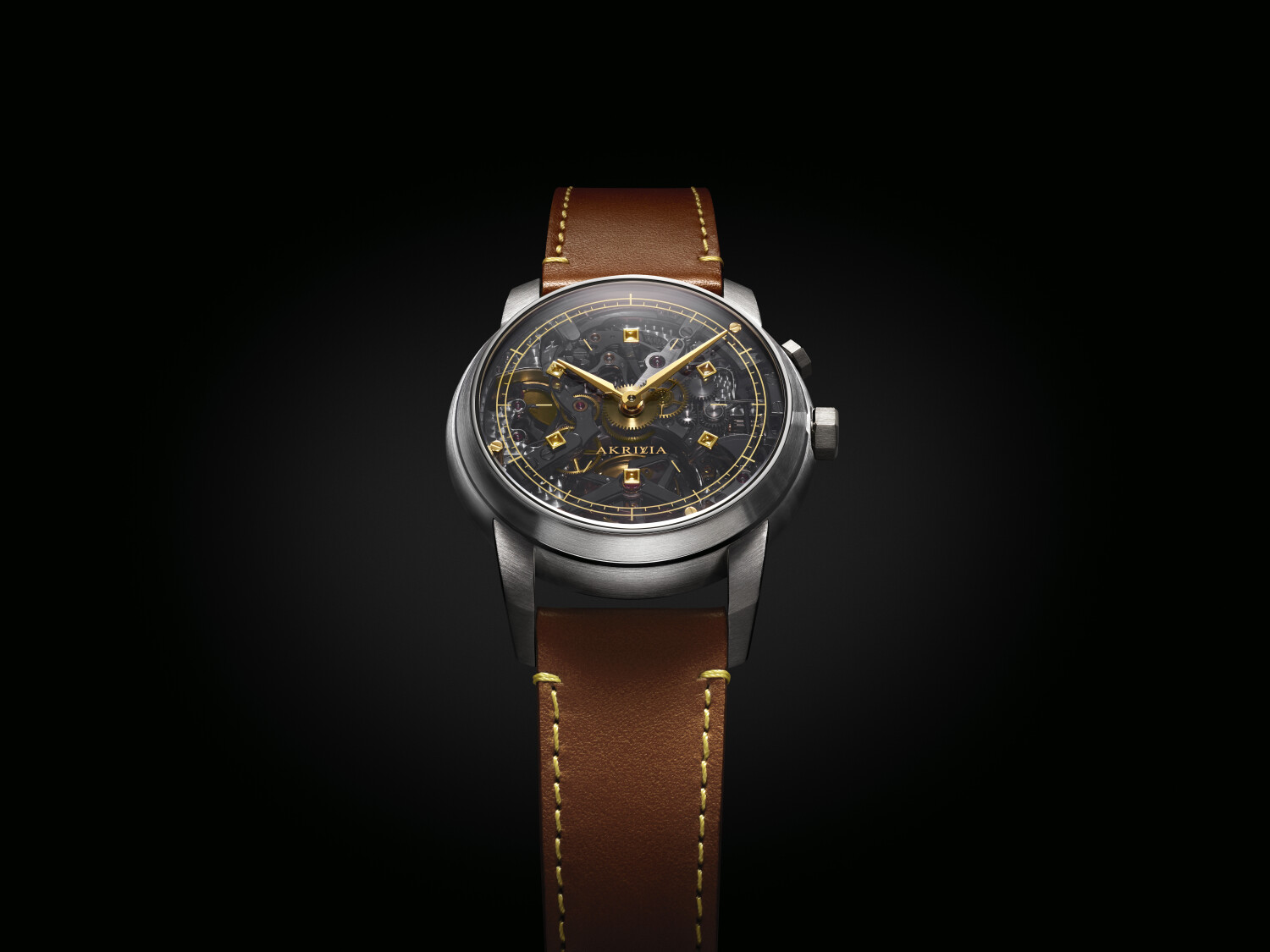
Born in 1821 in a town not far from the Swiss border, Louis Vuitton moved to Paris as a teenager, where he became an apprentice to one of the noted trunk makers of the day. He soon made a name for himself as an expert crafter of cases and trunks, gaining clients like the Empress of France. In 1854, he set up his eponymous atelier and became so successful that he eventually moved to larger premises in Asnières, where the Louis Vuitton trunkmaking atelier remains to this day. History, as the saying goes, never repeats, but rhymes. Rexhep Rexhepi left his native Kosovo for Geneva as a teenager and shortly after took up an apprenticeship at a High Watchmaking atelier aged just 14. In 2012, he set up his own brand, Atelier Akrivia, with the conviction of producing watches in the grand tradition of Haute Horlogerie. The shared passion for fine watchmaking set in motion events that would lead to the creation of the LVRR-01, which emerged around the conception of the Louis Vuitton Watch Prize for Independent Creatives.
A union of historic complications
The LVRR-01 is a comprehensive meditation on the nature of time: a precision chronometer equipped with a tourbillon regulator that indicates the current time, but also an instrument that measures elapsed time, while marking for the first time in the watch industry, the passing of time with a sonnerie mechanism. These complications are showcased with an ingenious two-sided display that symbolises the collaborative development of the LVRR-01. The contemporary front dial in tinted sapphire crystal juxtaposed against a traditional face on the reverse in white grand feu enamel, together an allegory representing perfectly the identity of both Maisons. The complications are a testimony to the histories of Louis Vuitton and Rexhep Rexhepi. The very first Atelier Akrivia timepiece, the AK-01, incorporated both the chronograph and tourbillon, while the first complicated Louis Vuitton watch, the Tambour LV277, was a chronograph, and the Maison’s first Haute Horlogerie complication was the tourbillon.
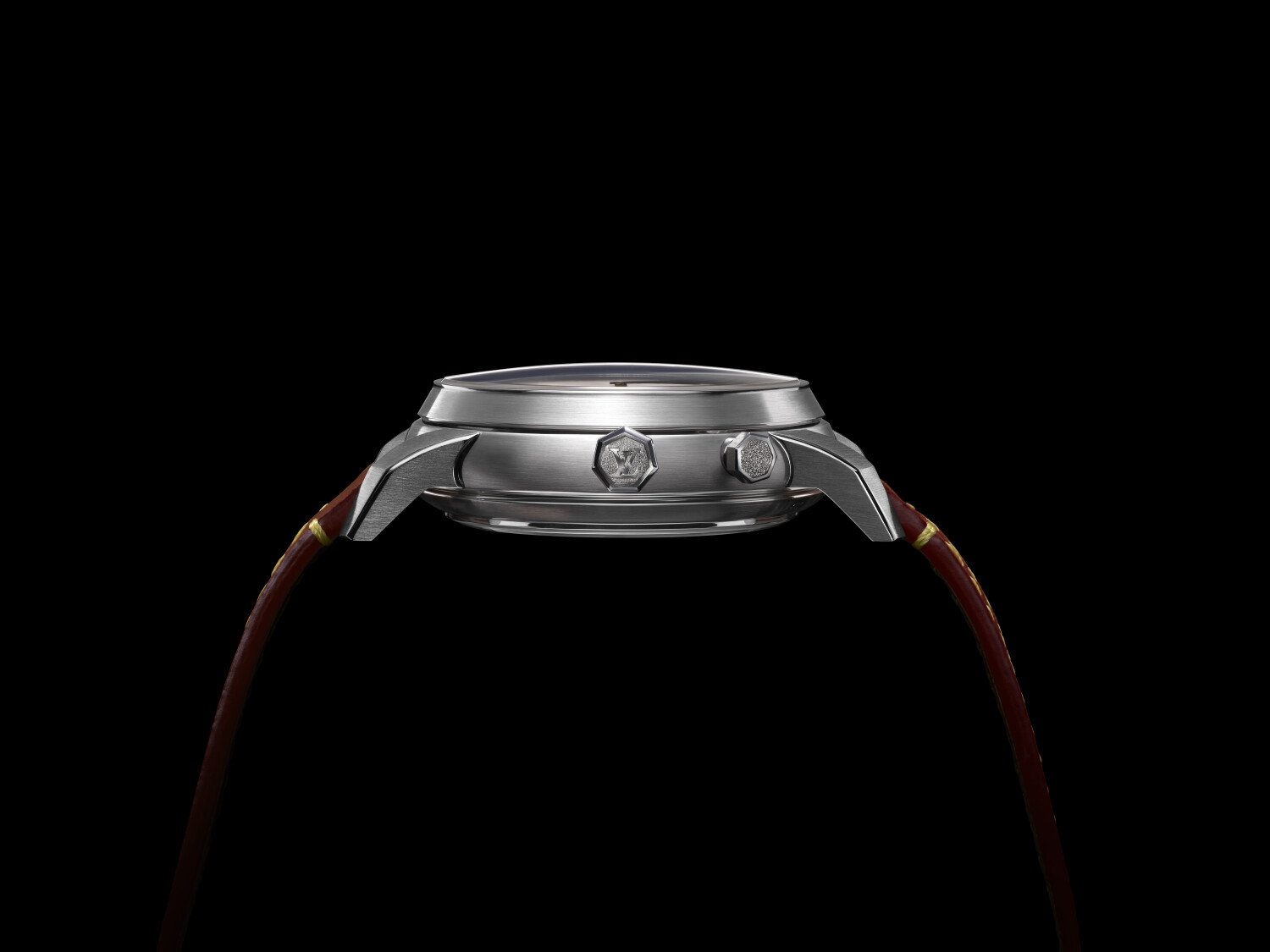
Pushing the boundaries of High Watchmaking
Within the LVRR-01 is a wholly-new calibre developed entirely by Rexhep Rexhepi. In his characteristic aesthetics, the movement is eminently traditional, a quality exemplified by the hand-applied decoration and gracefully-shaped chronograph levers. The exceptional double-faced dial of the LVRR-01 called for an equally unusual approach to the movement. Compared with conventional movements, the LVRR-01 calibre is inverted, with the chronograph and chiming mechanisms visible on the front instead of being on the back. This allows the magnificent architecture and decoration to be admired on the wrist at all times. The tinted sapphire dial reveals the fine finishing of the components, every single one of which is decorated by hand with traditional techniques like anglage, and black polishing. Taking pride of place on the front at six o’clock is the tourbillon that completes one revolution every five minutes and designed by Rexhep Rexhepi in its characteristic respect for the horological history. In contrast to the one-minute rotation of a conventional tourbillon, the five-minute rotation is in the spirit of historical chronometers. Inside the tourbillon cage is a balance wheel with twin broad arms and eight inertial regulating weights, inspired by those found in marine chronometers.
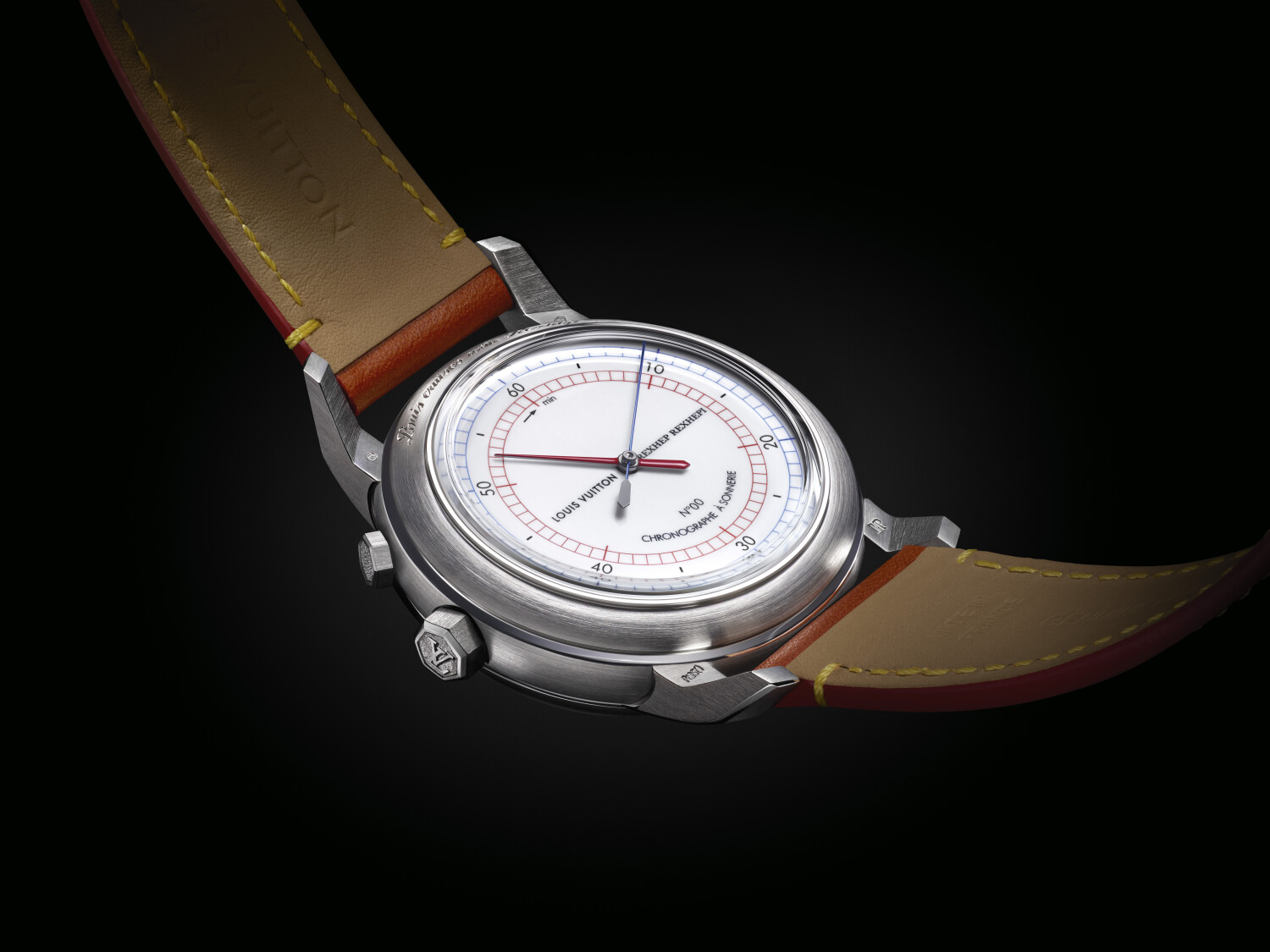
The defining and unique aspect of the movement is the Chronographe à Sonnerie, a pair of complications never before integrated in this way within a wristwatch. While the combination of elapsed time measurement with a striking mechanism has historical precedent in pocket watches, it is a true statement in contemporary watchmaking. The chronograph functions of start, stop, and reset are controlled by the pusher at two o’clock. However, the chronograph boasts the addition of an acoustic reminder of elapsed time, with a single chime struck as each minute passes. Clear and musical in tone, the chime is sounded by a black-polished steel hammer striking a tempered steel gong, developed at Atelier Akrivia that emits a single harmonious note to signify the passage of 60 seconds. Integrating the two complications, the chronograph and the sonnerie in addition to the tourbillon, required ingenuity in both engineering and execution, as this systems should work in synergy and each need enough energy to function. Rexhep Rexhepi devised a concise solution of twin barrels, one power source for the timekeeping portion of the movement and the chronograph and another for the chime, but with a twist. While the standard approach would have been to segregate the barrels and allow them to run independently, Rexhep Rexhepi has devised a construction in which the second barrel is linked to the gear train in a particular way.
Once the chronograph is activated and the central mobile is released by the hammer, the rotation from the second barrel is no longer blocked. Energy is thus supplied to the base gear when the chronograph and striking mechanism are running, ensuring that the complications have sufficient energy to function properly without disturbing the movement. Visible through the sapphire dial is the mechanical ballet responsible for the chimes. The sonnerie and second barrel are linked to a secondary escapement featuring jewelled pallets. This escapement releases the energy of the second barrel cyclically, ensuring the sonnerie strikes precisely and regularly. A case-making legend
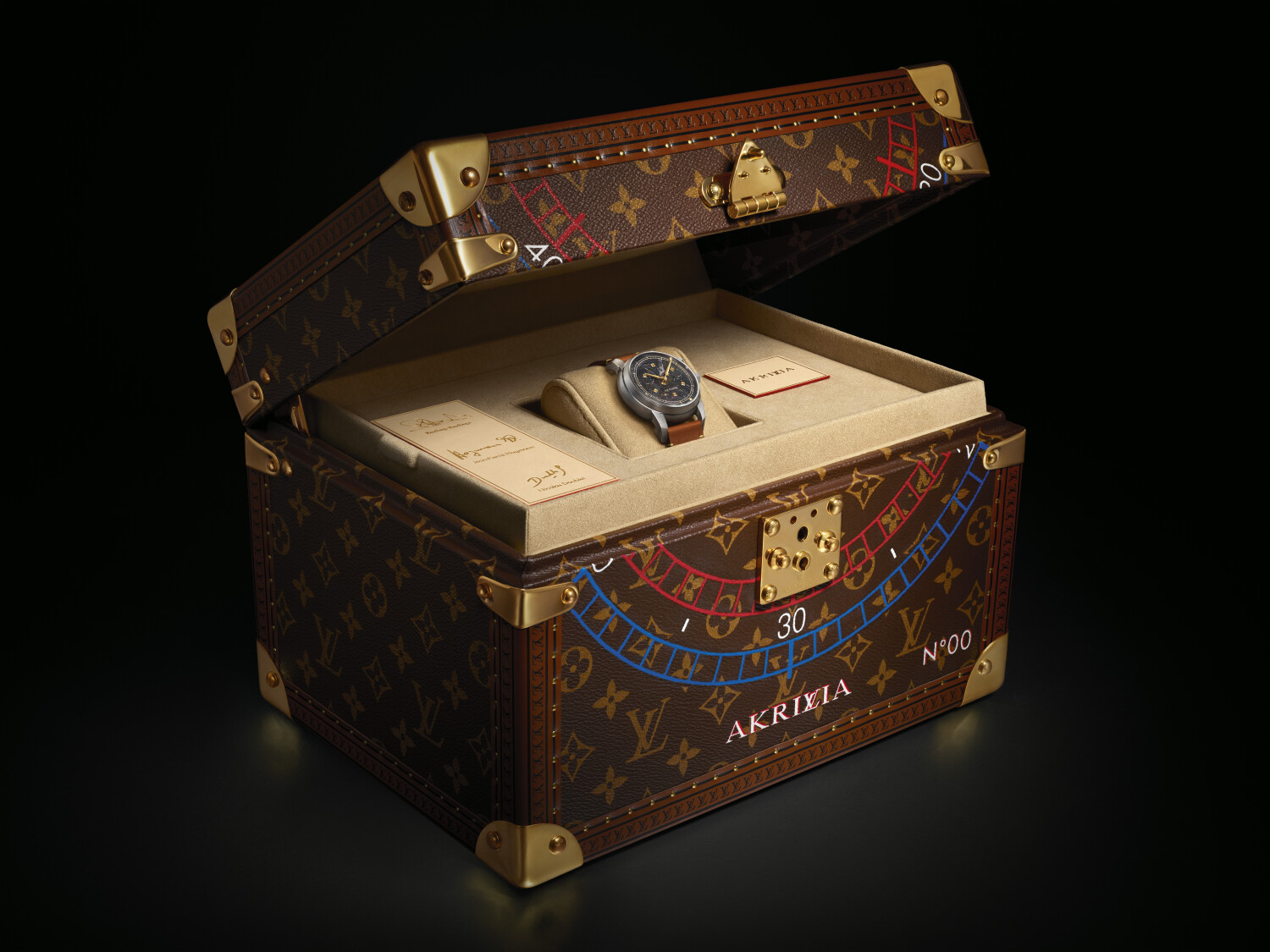
The seamless blending of Louis Vuitton and Atelier
Akrivia continues in the platinum case, which is a perfect match of Louis Vuitton’s signature Tambour imbued with the stylistic touches of Rexhep Rexhepi, particularly in the thin, classical form of the case. The LVRR-01 translates the drum-shaped form of the Tambour into a reinterpreted, streamlined form distinguished by a tall, sloping bezel and elegantly sculpted lugs that draw on mid-century gentlemen’s wristwatches.
The crown and chronograph pusher each have a seven-sided form inspired by the Louis Vuitton watches, but they are hand-crafted in the Atelier Akrivia style. Chamfered on their edges like the parts of the movement, the crown and pusher are decorated with hand hammering, exactly the same technique applied by Rexhep Rexhepi. The case is made by Atelier Akrivia in a process overseen by Jean-Pierre Hagmann, the Master casemaker in its case-making workshop. Armed with decades of experience, Jean-Pierre Hagmann’s expert eye ensures the case is perfect
in form and detail – the discreet “JHP” hallmark on the lower-right lug is his personal seal of quality. And the final understated detail alluding to the shared venture is “Louis cruises with Rexhep” hand-engraved on the case back, a calligraphic dedication of this unique encounter.
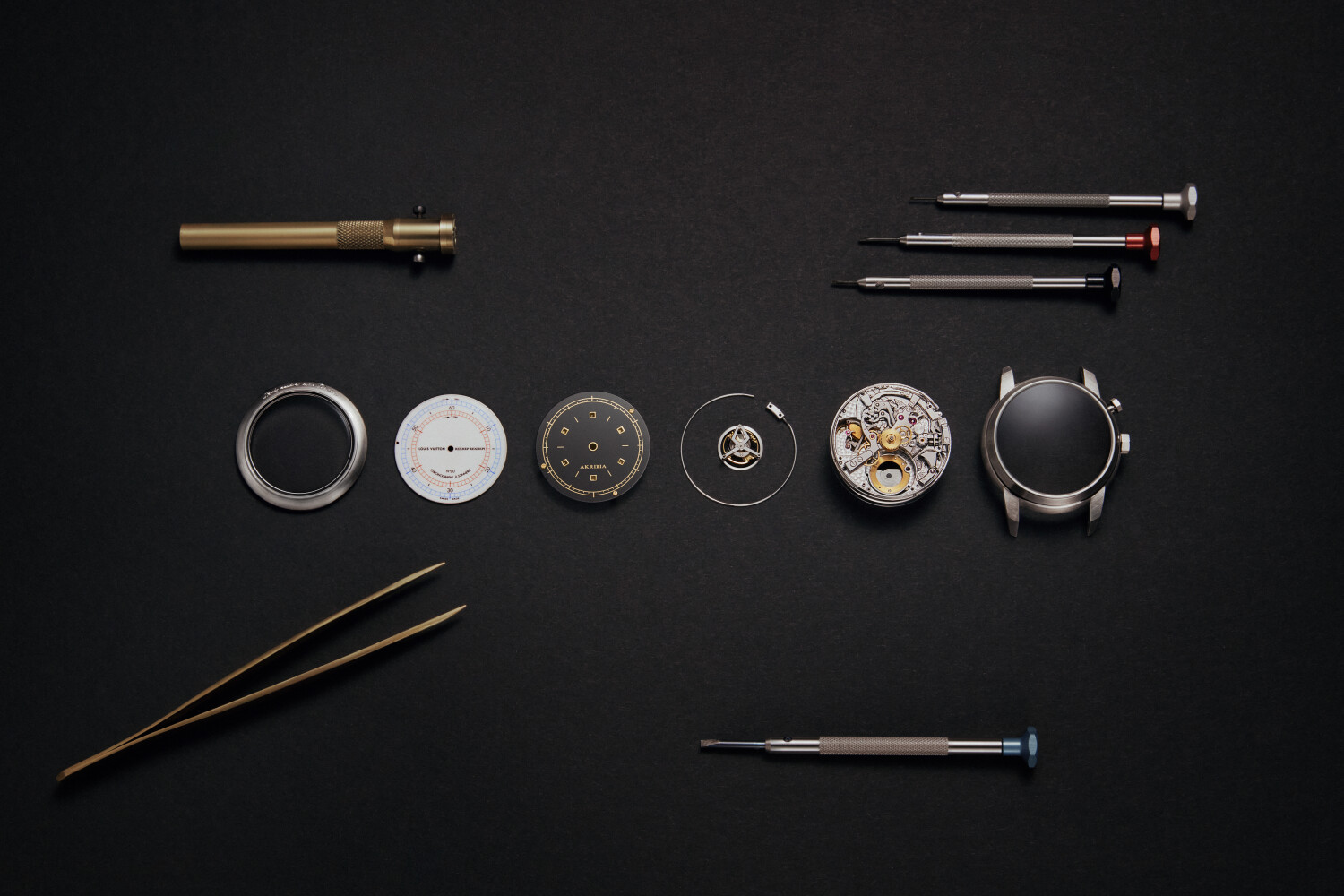
The many faces of time
The individual and distinctive aesthetic codes of Rexhep
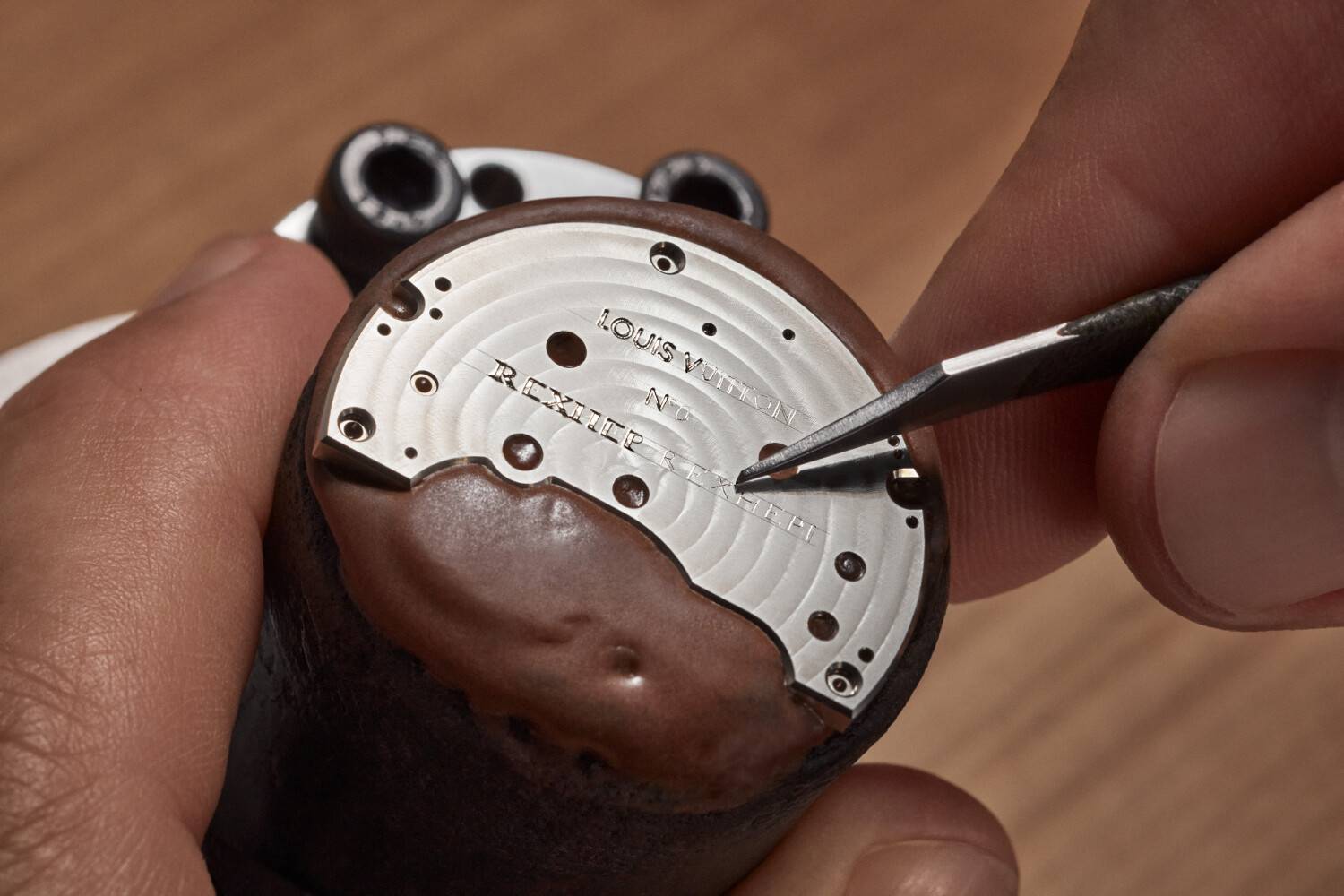
Rexhepi and Louis Vuitton are unmistakeable on the two dials yet coherently integrated into a perfect whole. Cleanly styled yet lavishly decorated, the front dial is eminently modern, mirroring the contemporary aspect of Louis Vuitton. The disc of tinted sapphire crystal features a gilt-metallised minute track that brings to mind the Rexhep Rexhepi Chronomètre Contemporain (RRCC I & II). The dial has six gold cubes filled with translucent fired enamel, a technique akin to stained glass known as plique-à-jour. The cubic motif is a nod to the Spin Time jumping-hours display, one of Louis Vuitton’s patented complications. At the same time, the gold elements on the dial discreetly acknowledge the yellow thread stitching that is a subtle but crucial attribute of Louis Vuitton leather goods. In contrast, the reverse face is resolutely classical in glossy white grand feu enamel, a tribute to traditional measuring instruments – it was designed by Rexhep
Rexhepi and crafted by Nicolas Doublel, the in-house enameller at La Fabrique du Temps Louis Vuitton. Bringing to 19th century chronograph pocket watches, the enamel dial features twin scales for the hours and minutes respectively, both printed in enamel. But the keen-eyed will notice the design of the enamel dial carries the spirit of the first-ever wristwatch made by Louis Vuitton in 1988.
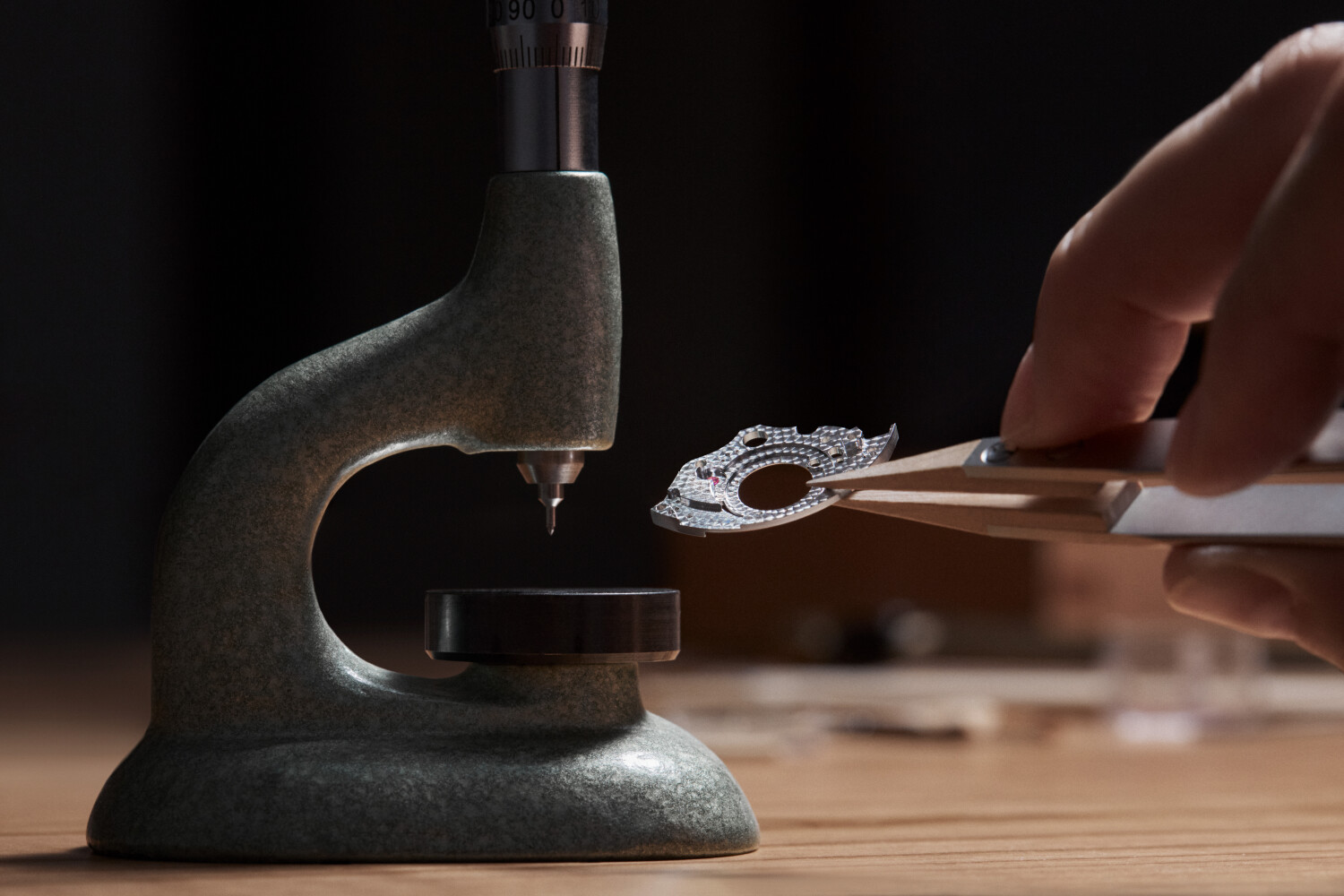
Both brand names bisect the enamel dial horizontally, reflecting the collaborative nature of the watch in style and in substance. While the white-gold disc for the dial base is produced by Atelier Akrivia, the enamelling is completed by the in-house enamel atelier led by Nicolas Doublel.
A singular trunk for a unique watch
The LVRR-01 is delivered in a unique Louis Vuitton traditional trunk. Made specifically for each example of the LVRR-01, every trunk is painted by hand with a motif inspired by the chronograph scales on the enamel dial, along with the “AKRILVIA” logo and individual serial number of the respective watch. As a finishing touch and a tribute to the artisans responsible for the LVRR-01, the trunk reproduces the signatures of Rexhep Rexhepi, Jean-Pierre Hagmann, and Nicolas Doublel. The LVRR-01 is accompanied by a Louis Vuitton strap of natural cowhide leather, a calfskin that acquires a delicate patina with use, and a unique platinum pin buckle made by the workshop of Jean-Pierre Hagmann that bears the “JHP” hallmark.
